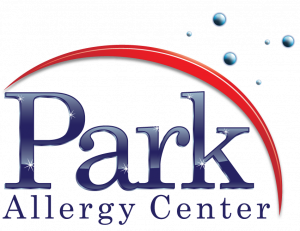Nasal decongestants come in two basic forms. One is oral pseudoephedrine, better known as Sudafed. This drug causes vasoconstriction of the blood vessels. Since nasal stuffiness is caused by vasodilation of the nasal blood vessels, you can see how it can be an effective treatment. Since antihistamines alone are not good at treating nasal stuffiness, drug companies quickly came out with combination products like Claritin D, Allegra D, and Zyrtec D. The D stands for decongestant. And the decongestant is pseudoephedrine. The problem with this drug is its potential side effects which include increased blood pressure, racing heart, jitteriness, insomnia, and … it can make men pee in their pants. Regular use of pseudoephedrine will often result in one or more of these side effects. The other OTC nasal decongestant is oxymetazoline and comes in a nasal spray. The most well known version is called Afrin, but I have seen “Meijer Nasal Spray With Saline” which is basically the same thing with different packaging. This drug is a powerful, topical decongestant. It improves nasal stuffiness effectively and quickly. The problem, once again, lies with side effects. People develop tolerance to this drug quickly, meaning it becomes less and less effective with continued use. This is the spray that people can “get hooked on.” Such patients often end up using this spray 6-12 times a day just to keep their nasal passages open a crack. You should never use oxymetazoline more than 3 days in a row. Most package inserts contain this warning. And of course everyone reads package inserts, right?
Overall, I do not recommend either of these products on a regular basis. As long as you are aware of its potential side effects, brief use may be helpful. For patients with chronic nasal stuffiness, the best OTC treatment is the allergy nasal spray, discussed in Part 2 of this series.
Michael Park, MD

